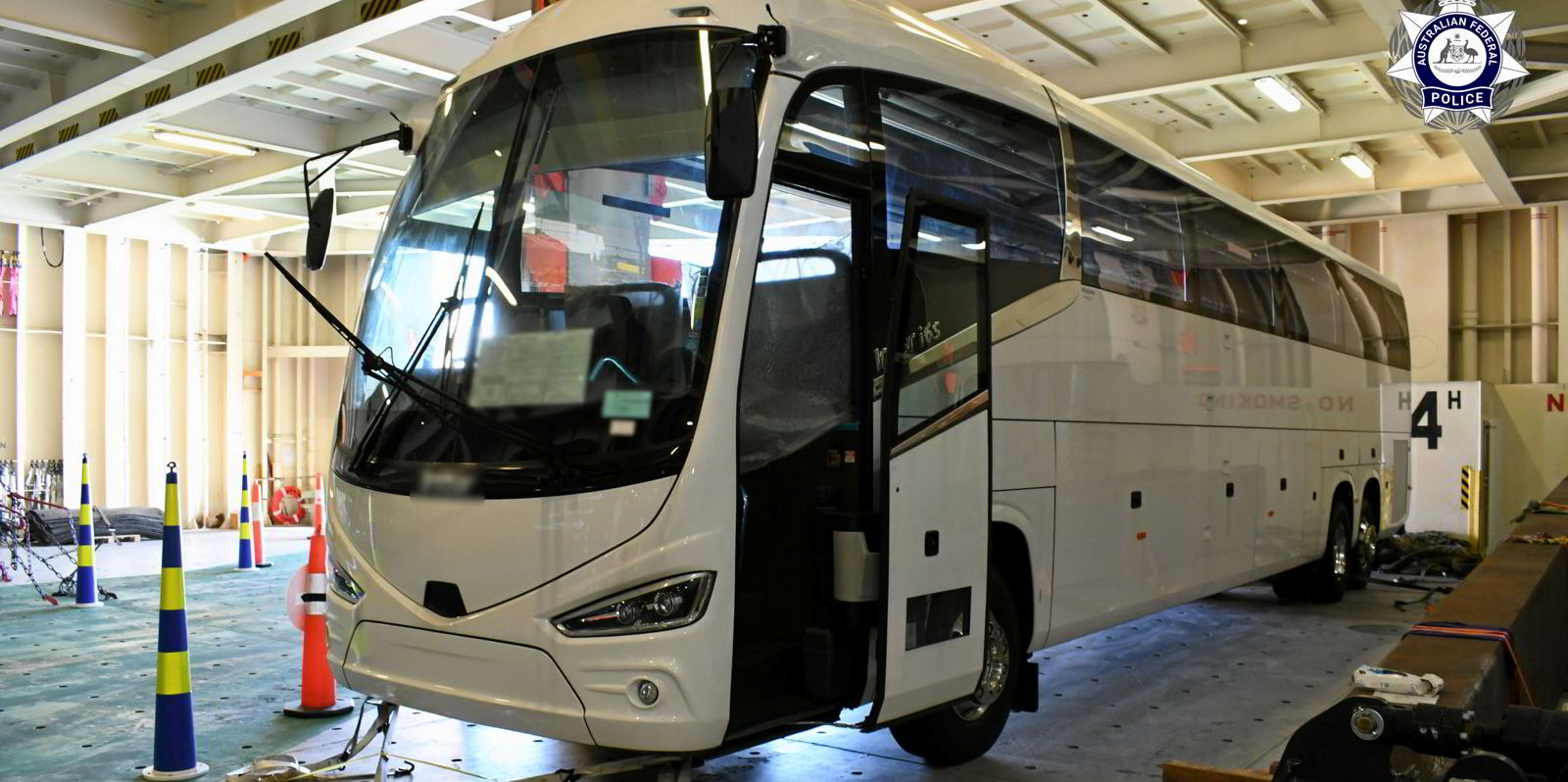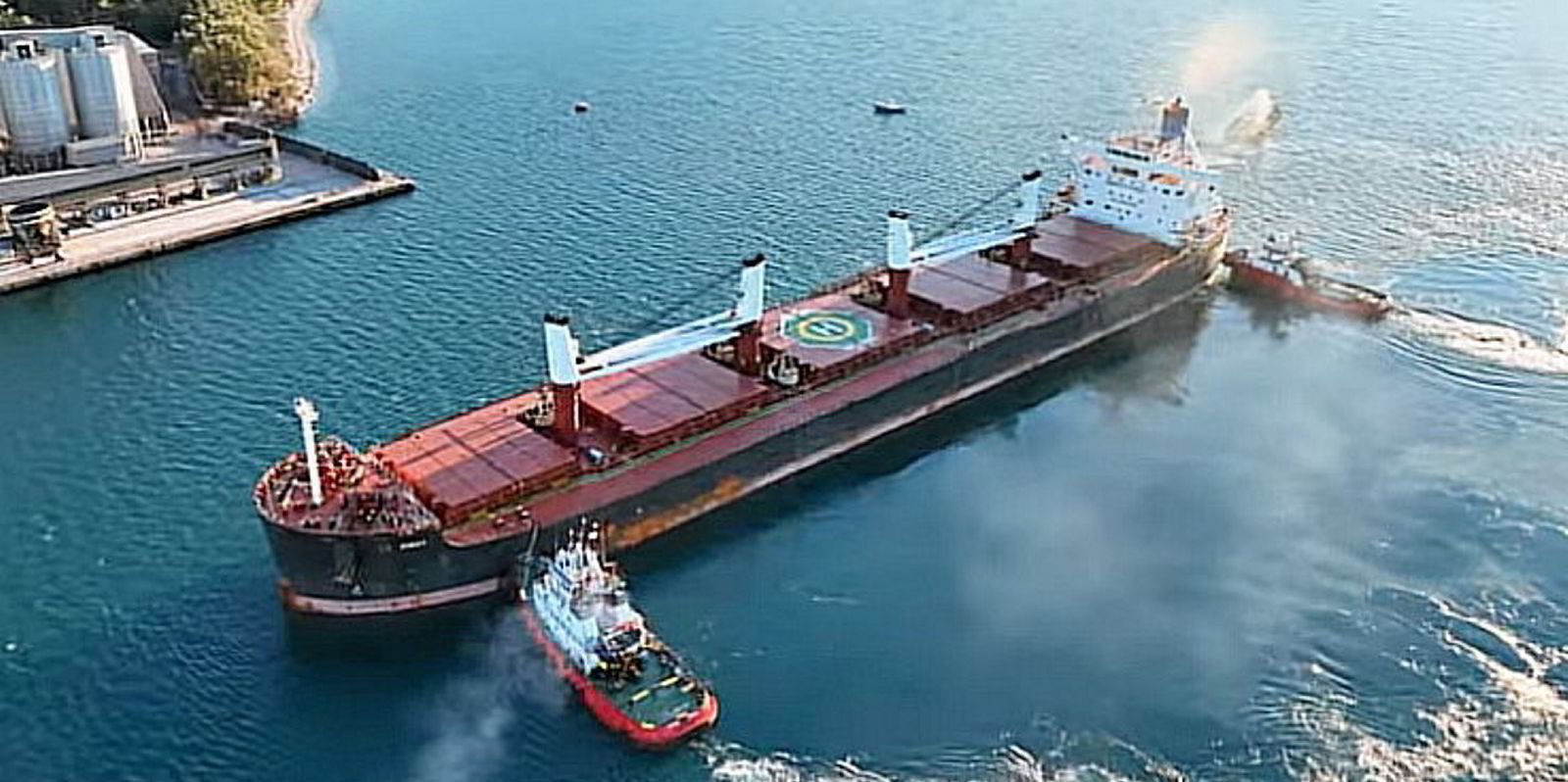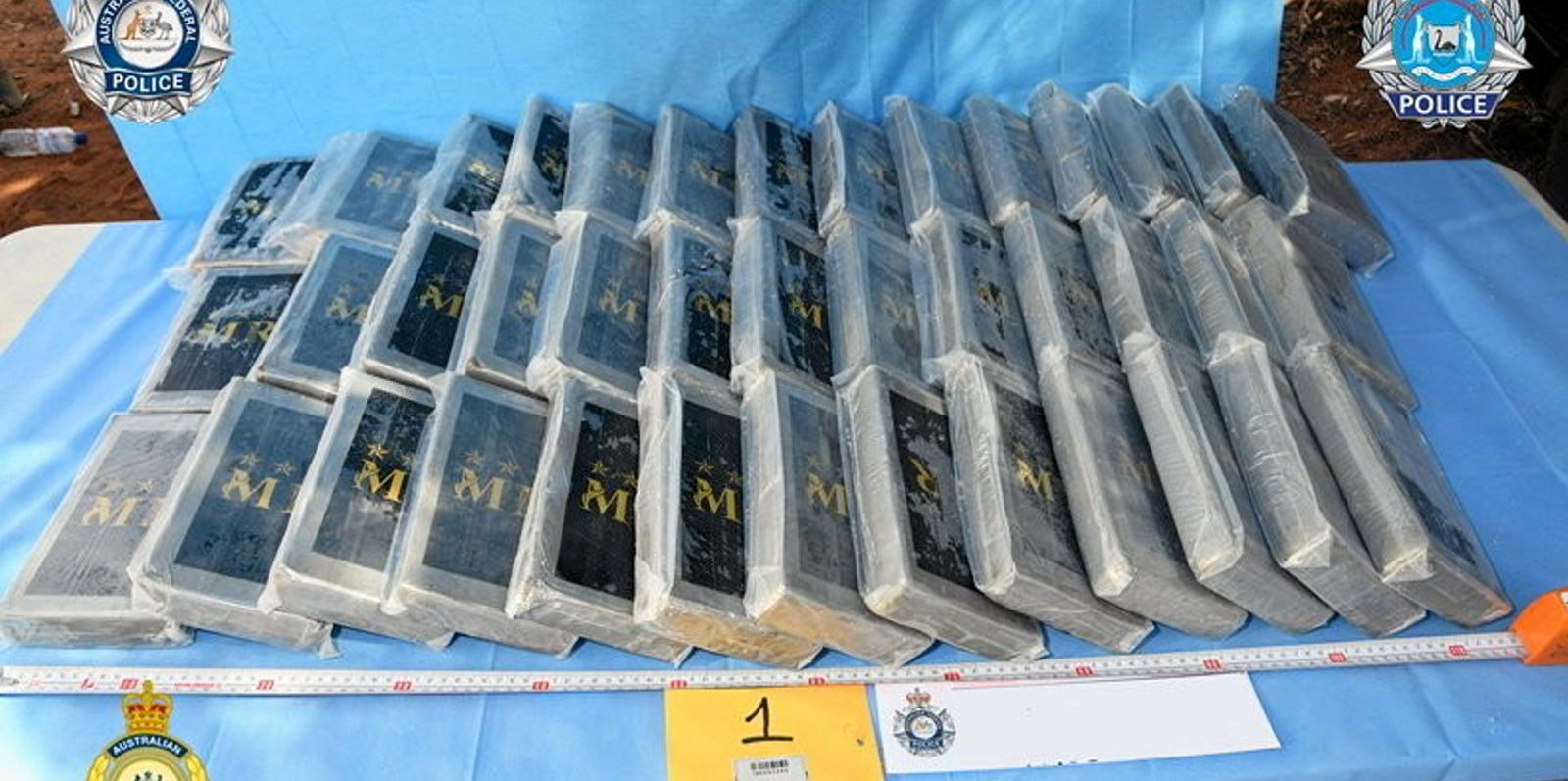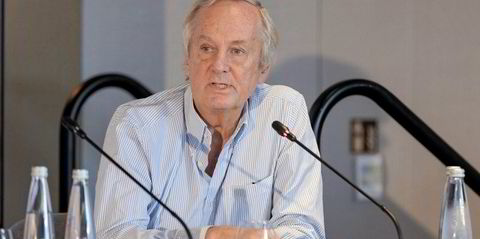Australian authorities managed to foil an attempt to smuggle 139 kg of cocaine into the port of Adelaide on a car carrier arriving from Asia.
The illicit cargo had been hidden inside a fleet of buses that were being transported on the undisclosed vessel.
Australian Federal Police (AFP) and the Australian Border Force (ABF) disclosed on Monday that they had received intelligence identifying that the concealed cocaine was destined for Adelaide, with the vessel due to make a first stop at the port of Fremantle in Western Australia.
ABF officers conducted a search of the buses in Fremantle on 28 January. During the search, they located several packages in four of the buses. A presumptive test of the packages returned a positive result for cocaine. The matter was subsequently referred to the AFP.
“This seizure of the 139 kg of cocaine has stopped a potential 695,000 individual deals from hitting our streets and causing significant harm to our communities and economy, with an estimated street value of AUD 45m [$29m],” the AFP said.
The AFP officers substituted the packages of cocaine, leaving the buses on the vessel, which delivered them to Adelaide as scheduled.
On 3 February, two men were caught while allegedly forcing entry into the buses to retrieve the illicit cargo.
The men, aged 22 and 19, were charged with attempting to possess a commercial quantity of cocaine. They were denied bail and face a potential sentence of life imprisonment.
Neither the AFP nor ABF identified the car carrier that carried the cocaine to Australia.
Port of Fremantle Authority data indicates that two car carriers arrived at the port on 28 January. The 6,400-ceu Gracious Ace (built 2012), owned by Japan’s Nichitoku Kisen and operated by Mitsui OSK Lines, arrived from Singapore, and the 9,400-ceu Grand Ruby (built 2007), owned by Cido Shipping and operated by Eukor Car Carriers, arrived from Yokohama, Japan.
The vessels subsequently continued their voyages to Adelaide.
The AFP declined to comment on the identity of the vessel involved, nor what penalties its owner or operator may face.
“As this is an ongoing investigation, we cannot provide further details,” it said in response to specific questions from TradeWinds.
The AFP said it, together with its partners, will continue to make Australia a “hostile environment” for transnational serious organised crime syndicates, onshore and offshore.
“Unfortunately, Australia is viewed as a lucrative market for organised crime groups due to the comparatively higher prices for illicit substances — but the risks are high for transitional serious organised crime syndicates as Australian law enforcement cooperation has never been stronger,” the AFP said.






